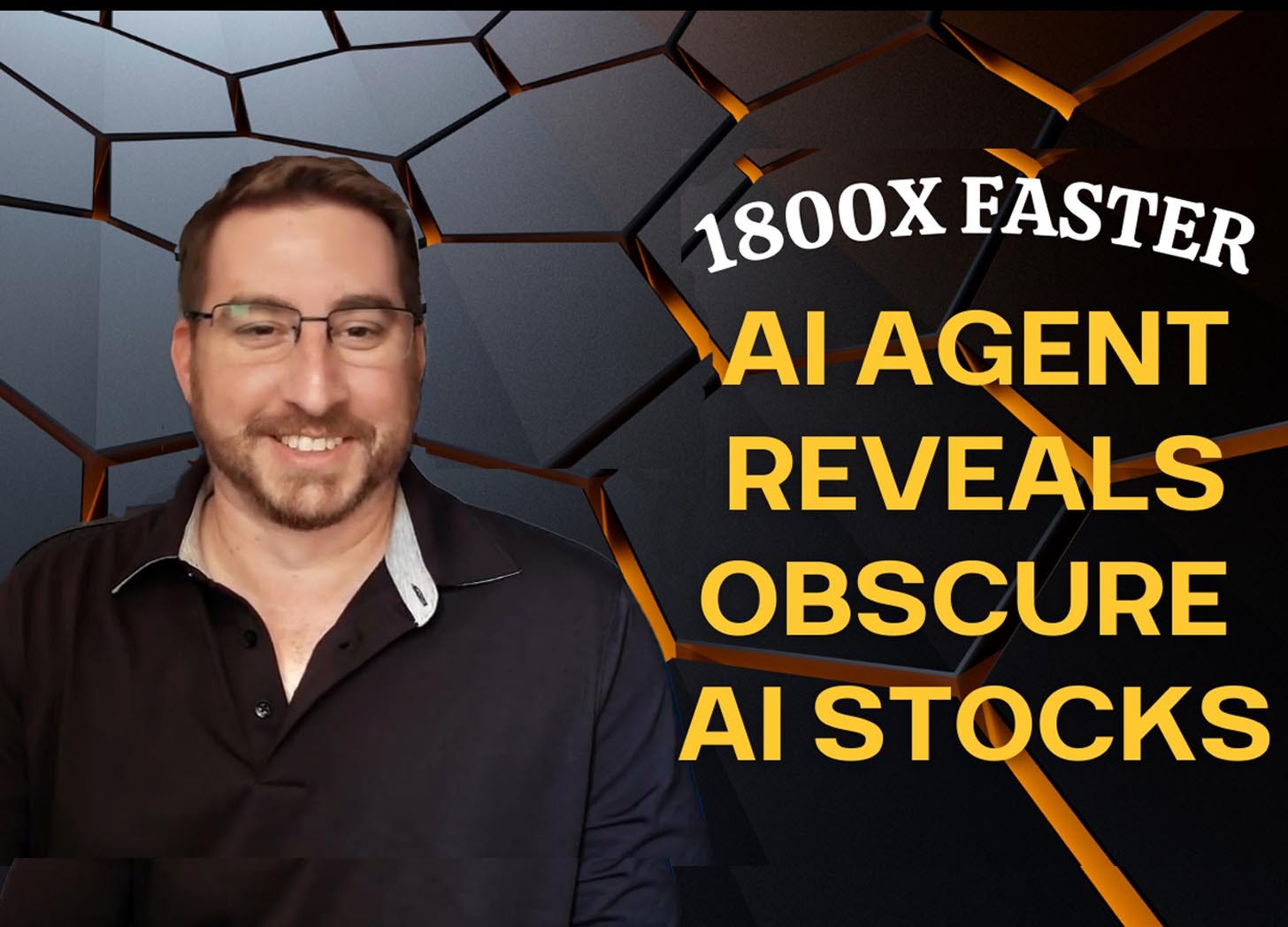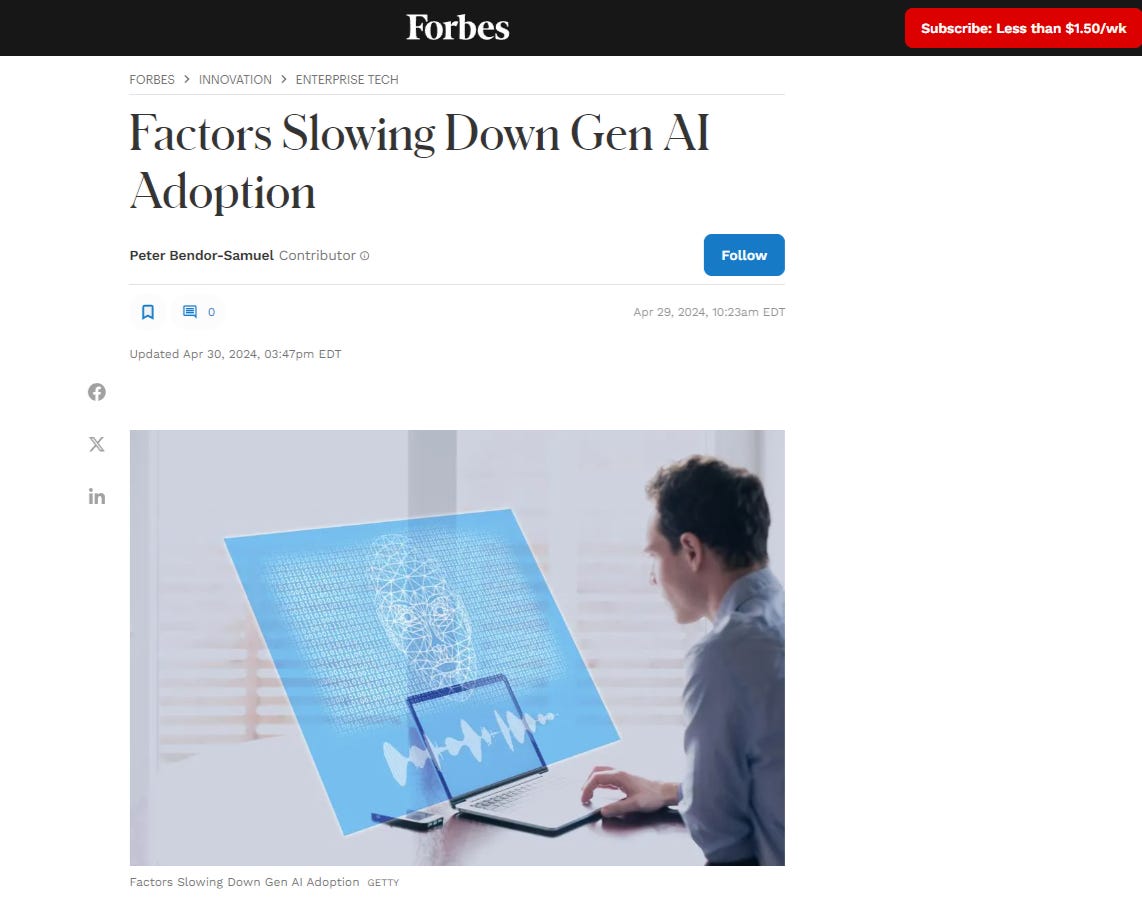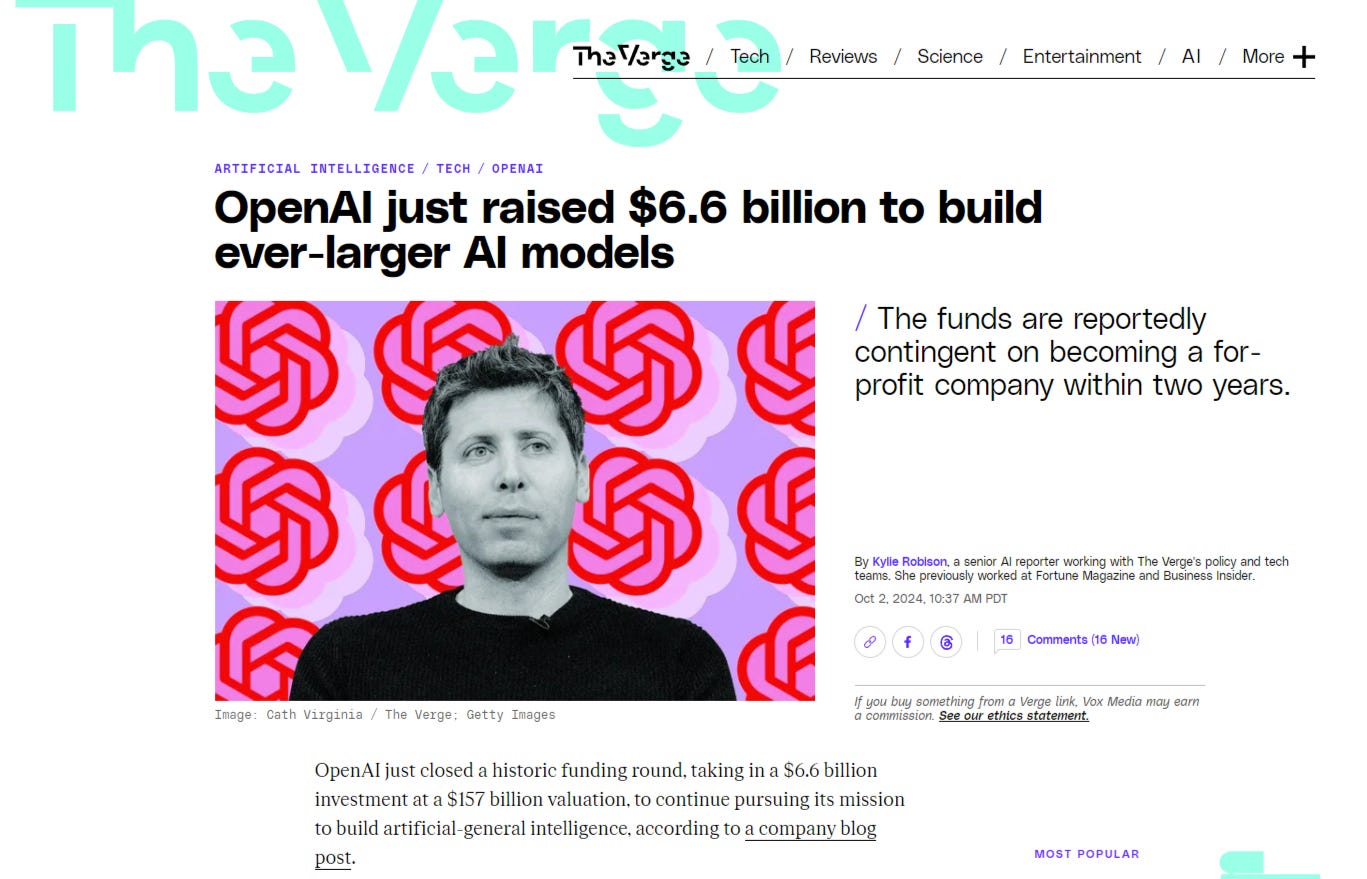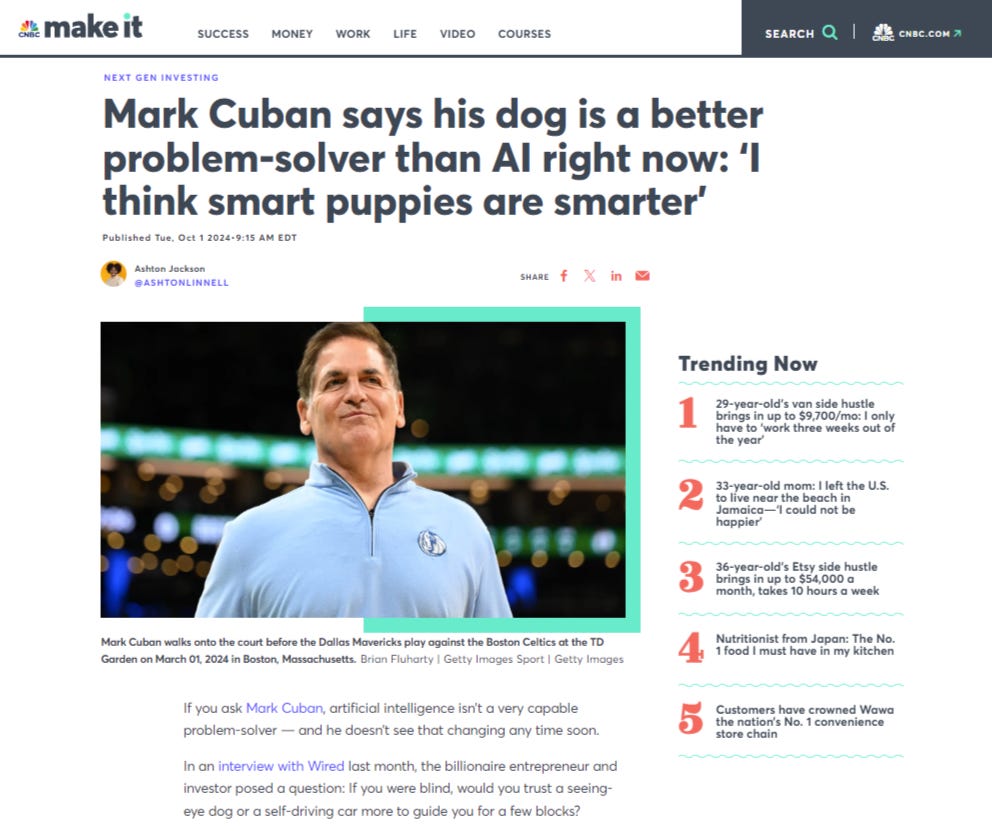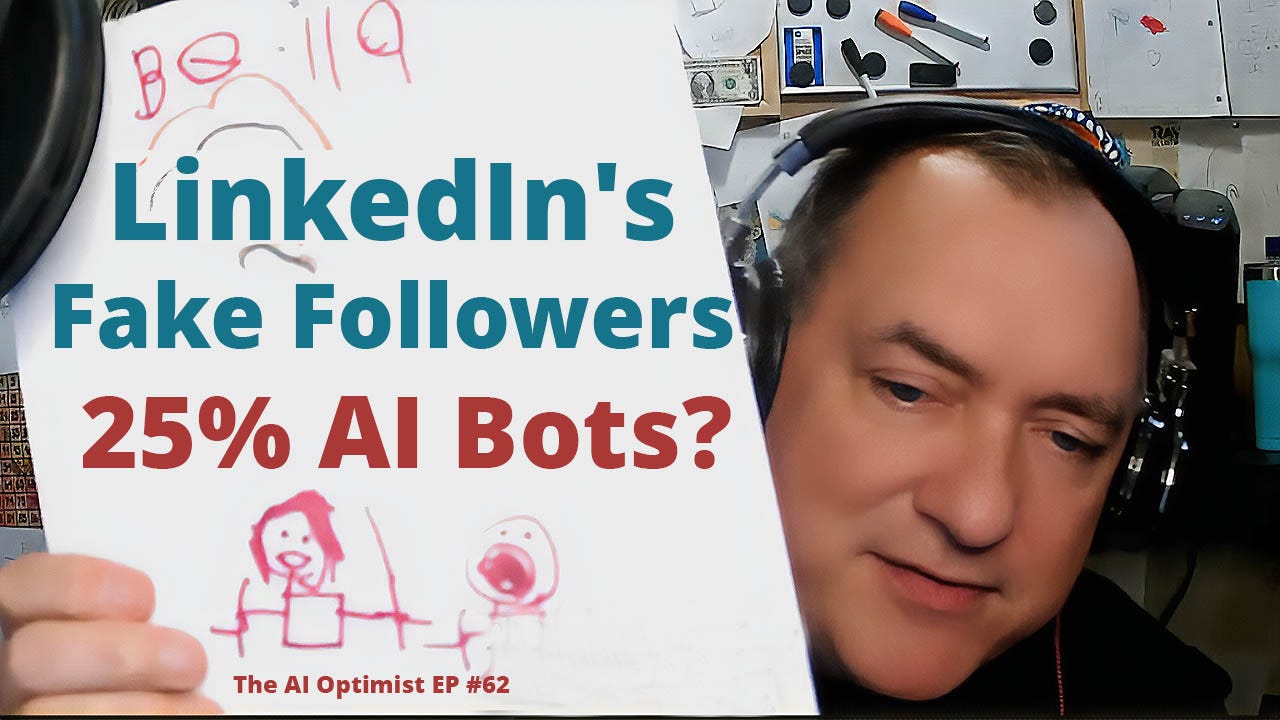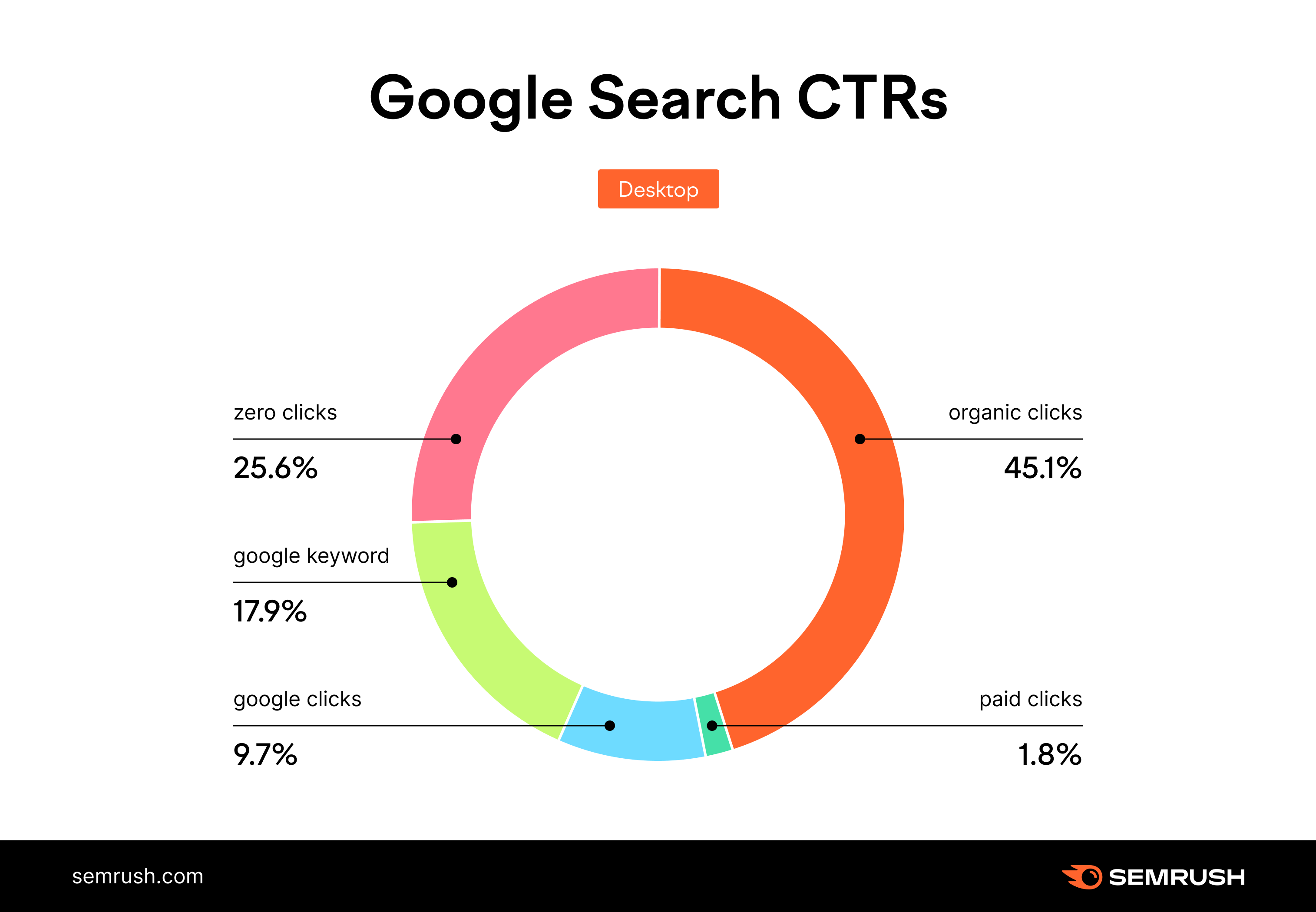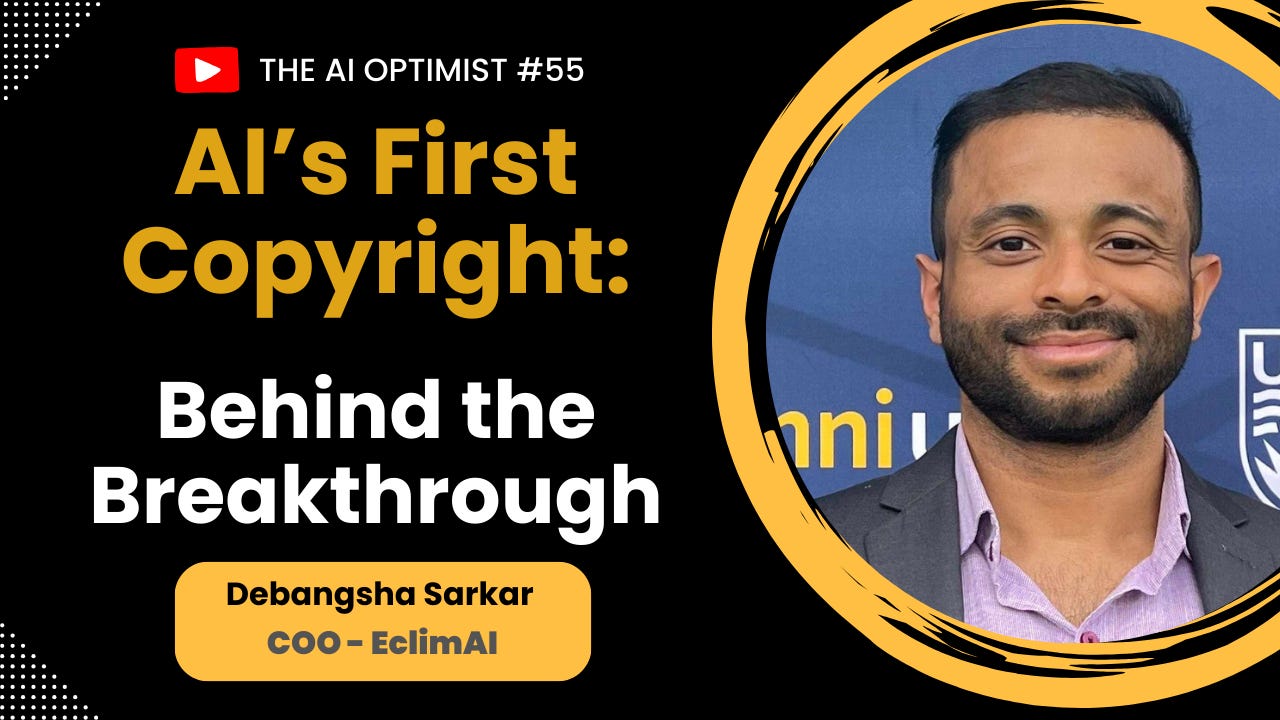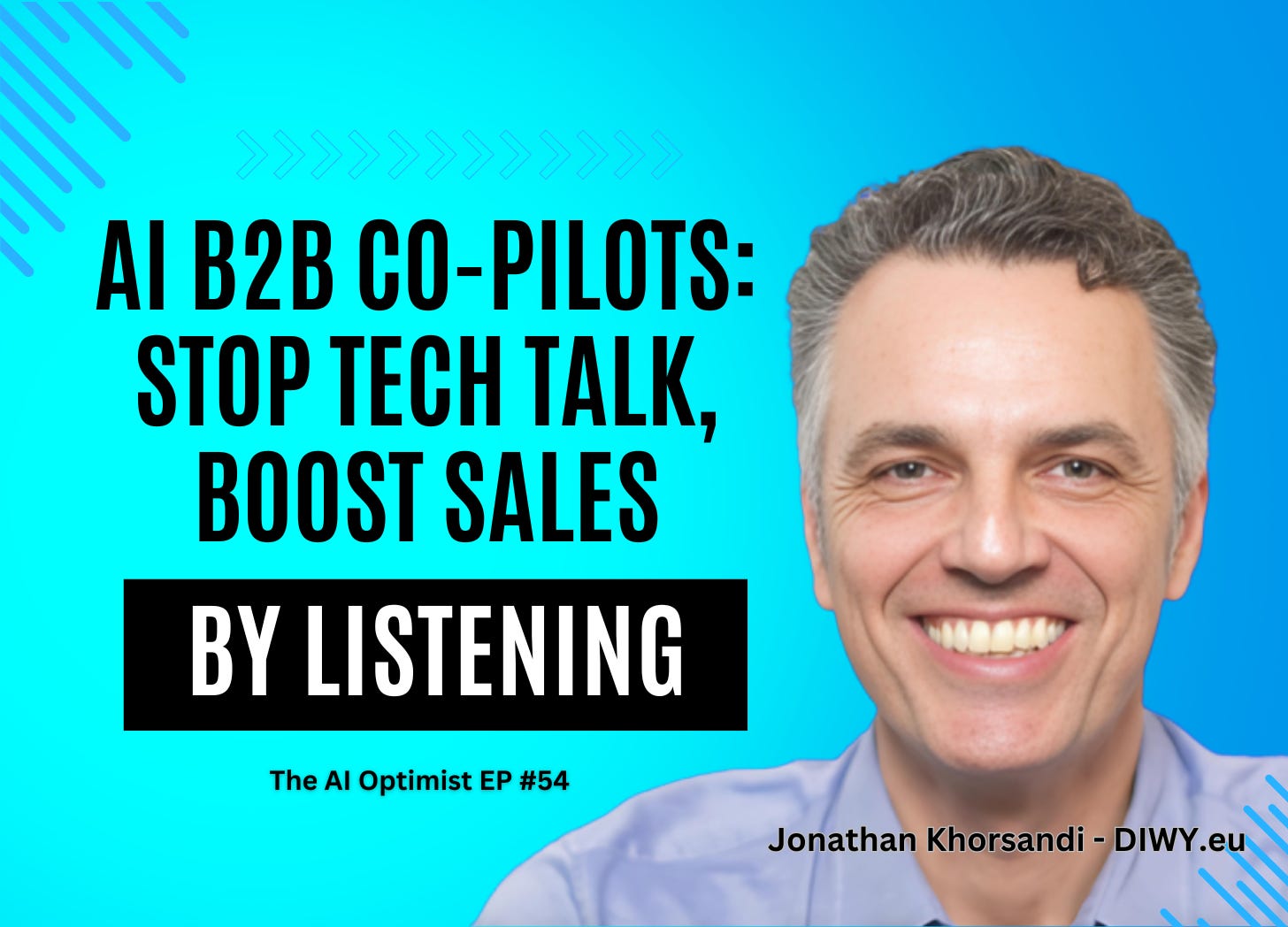1800X Faster AI Agent Reveals Obscure AI Stocks
Description
Most AI Agents talk about what they’ll do in 2-3 years, based on predictions of the future and suspect business models.
Then there’s LevelFields.ai, an AI Agent that automates the research and evaluation process for the stock market. Developed using a proprietary technology, this is one of the first working examples of an AI Agent.
In this episode of The AI Optimist podcast, we explore the world of AI-driven investment strategies with Andrew Einhorn, CEO of Level Fields AI.
Einhorn's company has developed an AI system that analyzes financial data and identifies investment opportunities 1800 times faster than a human analyst.
This groundbreaking technology aims to level the playing field for retail investors, giving them access to the same powerful tools used by large hedge funds and financial institutions.
Our Guest:
Andrew Einhorn - CEO of Levelfields.ai
Andrew is Chief Executive Officer and co-founder of LevelFields, an AI-driven fintech application that automates arduous investment research so investors can find opportunities faster and easier.
He aims to create AI tools that make advanced financial strategies effortless and accessible for all. With over 10 years of experience in building, leading, and exiting from technology firms, he has a proven track record of delivering innovative solutions that solve real-world problems and generate value for customers and stakeholders.
The Genesis of Level Fields AI
Einhorn and his team developed Level Fields AI after years of experience working with Fortune 500 companies, a $65 billion hedge fund, and even the White House.
Their software was initially designed to locate and analyze events that could impact a company's stock price, relaying this information to corporate communications teams as quickly as possible.
After selling their previous company, Einhorn and his team regrouped to consider improving their technology. The onset of the COVID-19 pandemic sparked a new direction for their efforts:
"We looked at it and said, what can we do to benefit society? What can we do to benefit people?
We saw a big disconnect between your large asset managers and 200 analysts who can pour through stocks, look at financials, 10-Qs, 10-Ks, and all the filings, and find great investment opportunities.
And for most people, they don't have time to do that. And even if they did, they couldn't cover 6000 stocks just on the US exchange."
This realization led to Level Fields AI, a system designed to bridge the gap between institutional and individual retail investors.
The Power of AI in Financial Analysis
Level Fields AI can read and analyze an astounding 30,000 documents per minute. This allows the system to identify patterns and anomalies that human analysts might miss or take weeks to determine.
The AI focuses on events proven to move share prices, relaying this information to users through alerts.
Einhorn explains:
"What we can do with these AI search agents is monitor everything happening around these stocks, looking specifically for events proven to move share prices. And when it finds them, it relays them as an alert. So, a user doesn't have to read all these documents, search through them, or do stock screeners.
The AI's Data Sources and Analysis Process
Unlike many AI systems that rely on news articles or third-party analyses, Level Fields AI primarily sources its information directly from company releases and filings.
This approach helps to eliminate bias and focuses on factual events rather than opinions or speculation.
Einhorn explains the advantage of this approach:
"Largely, it's directly from the companies themselves to the reports they put out, the press releases they put out, and, in some cases, interviews that they've done...
And that prevents many problems. Right. And prevents some of the opinion izing that tends to happen in news articles or the bias of an article to focus on one particular detail or the press release and not others deemed less important."
The system's analysis goes beyond simple word recognition. It uses context-based algorithms to understand the true meaning of the information it processes. Einhorn provides an example:
"Let's say you had two articles before you, and you're an AI system. One article from National Geographic magazine talks about bluebirds. Right.
And what they do and how successful they are. The other is a Bloomberg article about Bluebird Bio, a publicly traded biotech company.
How does the AI know that one is a bluebird that flies in the sky and the other is the Bluebird bio? And the answer is the context around it."
Moreover, the AI correlates events with real-time stock price data to identify patterns:
"We use that by extracting your real-time data from the exchanges and pairing it with the event. So there's a correlation component to that: this win rate in this correlation component, 95% of the time, this event will drive up the share price or drive down."
AI Agents: A Unique Approach
Einhorn's team took a different approach to developing their AI system compared to many others in the field. He explains:
"We built our own language model and libraries and ontologies. Linguistically, we have different linguistic algorithms that we employ. I think there's several hundred. Started the process in 2019 and we built it very focused on finance."
Initially, they considered using open-source AI tools, but found them inadequate for their needs:
"And in the beginning, we thought, oh, maybe we could just get kind of a open source AI tool and train that and save and development.
But they were so basic, it just wasn't going to work for our needs, because it required so much training and the stuff that it was doing in the open source, it was really just kind of tokenizing the words.
Right, saying, this is a noun, this is an adjective that's a proper noun. And that was a good starting point. But it was pretty elementary."
Instead of building on these basic tools, they decided to start from scratch:
"And so rather than rely on that and train some analysis tool how to do it properly and build on top of it, we just scrapped it and did it from scratch and said, what?"
Their focus was on developing context-based algorithms that could understand the nuances of financial language.
He shares how an AI LLM might search for bluebird, finding the actual bird and also Bluebird Bio, a biotech company. It must no the difference, and that happens by applying context:
"We spent more time kind of developing like contextual based cues and algorithms that would tell the AI hey, you're in a finance publication now, we're not talking about animals."
The team also prioritized extracting factual information over opinion or hyperbole:
"How do you extract hyperbole out, we wouldn't allow the system to kind of look at some of that type of language.
Right? It was just looking at straight events. And so our goal was no, no bias, no bull, right.
Just look at events that happened or didn't happen or it might happen in the future."
Einhorn emphasizes that their system is constantly learning and adapting:
"The system was learning on a regular basis. As language is shifting over time, you have to adjust your algorithms and the language that you're looking for.
And this include shorthand, social media acronyms that just become common speak, and being able to put those together. So it's it's a constant process of improving."
This unique approach to AI development has allowed Level Fields to create a system specifically tailored to the needs of financial analysis, setting it apart from more general-purpose AI tools.
Uncovering Obscure AI Stocks
While much of the AI investment hype has focused on big tech companies, Level Fields AI has identified some surprising players in the AI space. These include:
* An Oregon utility company powering data centers
* A company developing AI-driven military drones
* A well-known company not typically associated with cutting-edge AI
One example Einhorn provided was Portland General Electric (ticker: POR). This utility company has been performing well despite the challenging environment for utilities:
"We got a couple utility companies that came across that were increasing their dividends substantially and it caused us to look at one of them, which is a Portland based utility company.
I think the ticker is POR; why is this utility company doing so well when utilities are not supposed to be doing well in a high interest-rate environment?
Well, the majority of the servers on the West Coast are based in Portland, and this is the utility company that is supplying electricity to those data centers.
Another exciting find was AeroVironment (ticker: AVAV), a $5 billion drone manufacturer:
"AVAV is a stock that we've tracked quite often. It's it's a $5 billion drone manufacturer. They made the switchblade drone the most famous drone in the Ukraine war.
They can shoot it like a mortar, and then it flies to the target and has a precision lock on the target. It's using AI to navigate on its own along the way."
The Human Element in AI-Driven Investing
While the AI system provides robust analysis and alerts, Level Fields offers a human-curated service for investors who want more guidance.
This service, priced at $167

